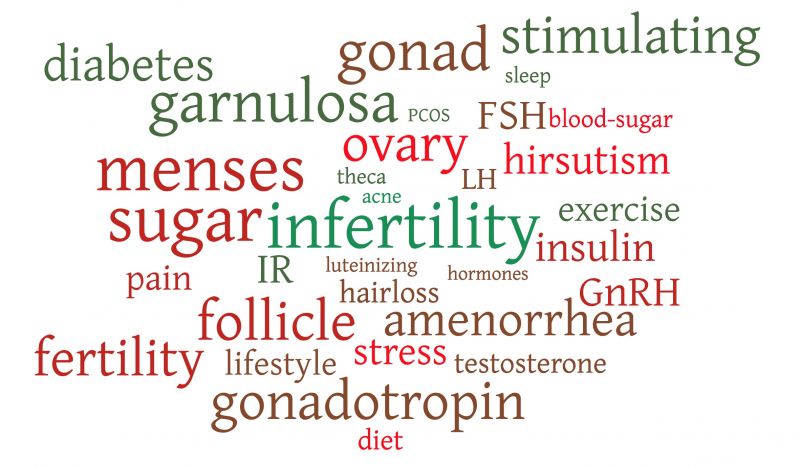Recently you can hear that this person has IR, the other has pre diabetes, and the third has type 2 diabetes. More and more people are affected by it.
When women start chatting, you have to realize, that plenty of women suffer from infrequent periods, hugh blood loss, brutal pain and the list goes on and on.
What is insulin?
Insulin is a hormone, made by the pancreas. It helps glucose to get into the cells, where glucose is used for energy production.
Insulin is like a key, opening up the doors, when someone is coming. Every cell has different receptors on them. These are like keyholes or docking stations. And every keyhole has its own key.
When we eat something, that can be broken down into sugar (glucose), our pancreas starts producing insulin. This insulin signals the liver, muscle and fat cells, “knocks” on them, to tell them it’s time to take up the coming glucose.
One day something starts to change. Why? Perhaps you couldn’t sleep enough, or you had an accident, or you had to face another traumatic event, or because your body got stressed out from the processed foods, that was ingested. There can be different reasons. Or even a combination of these.
At first you don’t feel anything. Then perhaps you feel more tired, then usual. But you just shake your head and keep going. Time passes by and pounds start to crawl up. The tricky bit is, that not everybody will face weight gain. There might be more and more things getting out of balance, but no-one really knows what’s wrong.
Your doctor requests a fasting blood sugar test, but blood sugar is the last one to increase. So it comes back normal, based on the conventional scale. But he doesn’t request an HgA1C test that measures how much sugar got bound to haemoglobin in the last 2-3 months, or a fasting insulin test, that can show the insulin status or a 2-hour glucose test, that shows both sugar and insulin levels.
At first the cells become just a bit “deaf” to insulin’s “knocking”, so they start to be resistant to insulin (IR). To solve the problem, our pancreas produces a bit more insulin, to be able to “knock” or “shout” louder. Finally, the cells decide to listen … This time… Next time your body might need to produce even more insulin, to make cells accept glucose (sugar). So when the blood sugar test tells you, that your blood sugar is normal, it might be normal due to a much bigger insulin activity.
After a while the insulin producing cells start to get “tired”, then they “wear out” and die. When this starts to happen, people can’t produce enough insulin anymore, and they might need some insulin injections prescribed by their doctor. The problem becomes obvious.
If, someone picks up the issue earlier, by realising, that in contrary of normal sugar levels, the insulin levels are way too high to be normal, then it’s much easier to balance things out and prevent type 2 diabetes. If you have a borderline result, then take it seriously! Being borderline doesn’t mean normal! It shows, that a process has started and you are heading towards the wrong direction.
The sugar, that can’t enter the cells, stays in the bloodstream. Increased blood sugar levels lead to inflammation. The same is true to increased insulin levels. The body gets out of balance and has to work harder to rebalance things. This is a stress for the body. And chronic stress can cause plenty of health issues.
I show you an example. Someone is eating highly processed foods and doesn’t do any exercises most of the days. So the person starts to accumulate bodyfat. That fat starts to produce inflammatory chemicals. These chemicals don’t allow insulin to properly communicate with the cells. This inflammation can “deafen” the cells, make them resistant to insulin. But insulin resistance has an inflammatory effect too. So the person steps into a vicious cycle, where the blood sugar creeps higher and higher, while insulin climbs higher too, for a while, but then insulin starts to decline and the person ends up having type 2 diabetes.
During this process the person might go through some other changes too: like higher triglyceride, high cholesterol, high blood pressure, joint pains, headaches, weight gain…
Some days ago I posted an article about how stress can lead to inflammation. People, whose body suffers from chronic inflammation, has higher chances to develop insulin resistance. High blood sugar levels can cause inflammation too.
While we are under stress, the body releases sugar into the blood to provide more energy and blocks insulin, preventing it to pull glucose into storage. But at the same time, if the cortisol level is continuously elevated, the cells start to starve and send signals to the brain, that we should eat. But when we eat, that increases the glucose level again, without providing energy to the cells, since it’s still struggling to use insulin.
But how does it influence fertility or period issues?
- Increased level of insulin can thicken the follicle’s theca layer. This layer is responsible for testosterone production. These follicles will overproduce testosterone relative to oestrogen. Testosterone is an androgen and a central factor in PCOS. High androgen levels can delay or inhibit ovulation, and can cause hirsutism (excess hair growth), acne and hairloss.
- Increased insulin can inhibit ovulation.
- High blood sugar levels can compromise egg quality.
- Increased insulin can lead to delayed egg maturation and result in smaller eggs.
- Increased insulin disrupts the hypothalamus – pituitary – ovarian axis’ hormone regulation: increases GnRH pulse frequency. This frequency influences LH and FSH levels.
- Increased insulin can contribute to increased luteinizing hormone Constantly high LH levels can cause irregular periods or infertility.
- Increased insulin might contribute to higher prolactin It can lead to irregular periods or infertility.
The female hormones work in a cycle. Everything is interrelated with the other things. If everything goes well, then at the beginning of the cycle, after menstruation, oestrogen levels are low. The pituitary senses this and sends FSH to mature an egg for ovulation. The follicle has 2 layers, the outer theca and the inner granulosa layer. The egg is inside. The follicle granulosa produces oestrogen and creates an oestrogen peak. This signals the pituitary that the follicle is ready for ovulation. The pituitary sends a pulse of LH and this LH surge finalizes egg development and the release of the egg. If everything goes well … The ovulation test kits measure this LH increase. But this increase doesn’t always mean, that the ovulation really took place. We can get much more accurate information about the ovulation, if we measure our waking basal body temperature every morning.
The empty follicle after ovulation becomes corpus luteum and starts producing progesterone. This progesterone is needed for hormonal balance and to support implantation for the fertilised egg. The corpus luteum produces some oestrogen too. After about 10-14 days this corpus luteum disintegrates and it stops producing progesterone and oestrogen. So progesterone and oestrogen levels drop. The hypothalamus senses this drop and sends GnRH (gonadotropin releasing hormone) to the pituitary to send out LH (luteinizing hormone) or FSH (follicle stimulating hormone). If it pulses slowly, it triggers FSH, when it pulses faster, it releases LH.
If the GnRH doesn’t slow down after sensing the lower oestrogen and progesterone levels, it will trigger too much LH throughout the cycle. Too much LH will cause the ovary produce more testosterone, that will inhibit ovulation, cause excess facial hair, acne and hairloss.
High insulin level can thicken the theca layer of the follicle. This layer produce testosterone. The thickened layer produces excess testosterone relative to oestrogen. This slows down follicular development and that prevents increase in both oestrogen and LH in the middle of the cycle, so it can’t trigger ovulation. If there’s no ovulation, there’s no corpus luteum, and without that, there’s no increase in progesterone and oestrogen. Since there’s no increase, then there’s no drop at the end of the cycle, there’s no proper message to the hypothalamus, to start a new cycle.
That’s the reason, you have to keep an eye on insulin levels. And since long term stress can cause insulin resistance, you have to learn how to manage stress.
I’ve written about the effect of stress some weeks ago. If you’d like to see another part of the picture, it’s worth clicking through and reading it.
LH: luteinizing hormone
FSH: follicle stimulating hormone
GnRH: gonadotropin releasing hormone
References
https://www.diabetes.co.uk/body/insulin.html
https://www.ncbi.nlm.nih.gov/pmc/articles/PMC3992527/
https://www.ncbi.nlm.nih.gov/pmc/articles/PMC1483173/
https://www.webmd.com/diabetes/type-2-diabetes-guide/inflammation-and-diabetes#1
https://annhathawaymd.com/womens-health/insulin/
https://www.scientificamerican.com/article/inflammatory-clues/
http://www.todaysdietitian.com/newarchives/111609p38.shtml
https://www.endocrineweb.com/infertility-insulin-resistance-5-tips-your-odds-getting-pregnant?page=1
https://www.ncbi.nlm.nih.gov/pubmed/12827388
https://link.springer.com/article/10.1007/s00404-003-0506-9
https://www.ncbi.nlm.nih.gov/pmc/articles/PMC3136063/
https://fertilitypedia.org/edu/risk-factors/high-level-of-lh
http://drhyman.com/blog/2014/08/18/one-test-doctor-isnt-save-life/
https://www.webmd.com/diabetes/guide/glycated-hemoglobin-test-hba1c
https://www.hormone.org/diseases-and-conditions/pituitary/hyperprolactinemia







